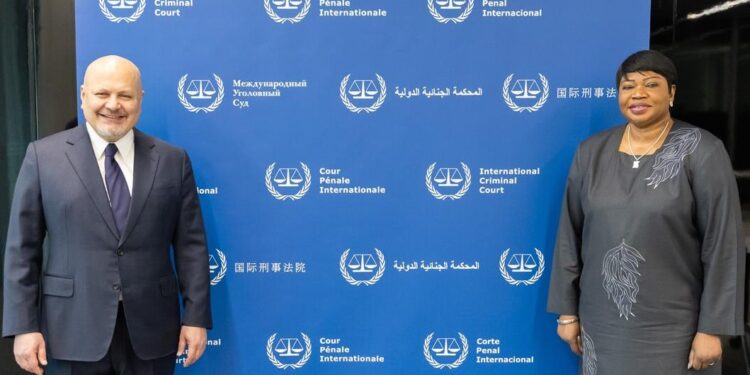The new Prosecutor of the International Criminal Court is scheduled to take his oath of office on Wednesday, June 16, 2021.
British lawyer Karim Khan was elected on February 12, 2021 at an Assembly of States Parties (ASP) sitting at the United Nations headquarters in New York and will replace Gambian Fatou Bensouda, who has served in the position for nine years.
In his 28-year career in international criminal law and human rights, Khan, who is also a Queen’s Counsel, and has served in cases at the ICC, the International Criminal Tribunal for the former Yugoslavia, the International Criminal Tribunal for Rwanda, the Special Court for Sierra Leone, the Extraordinary Chambers in the Courts of Cambodia, and the Special Tribunal for Lebanon.
His most recent work as the head of United Nations International Team to Promote Accountability for Crimes Committed by Da’esh/ISIL was to gather evidence and testimony to be used against the Islamic State’s leaders in Iraq. He has handed over the reins after three years to take the helm as the new ICC Prosecutor, where he will serve for nine years.
Those who supported his candidacy cited his experience in international justice as an advantage that will enable him to efficiently carry out the duties the Office of the Prosecutor (OTP). “Karim’s extensive experience in international law will be pivotal in ensuring we hold those responsible for the most heinous crimes to account and gain justice for their victims,” British Foreign Secretary Dominic Raab posted on Twitter. Raab has worked at the British embassy in The Hague and has some knowledge of the international court system.
In an interview with Asymmetrical Haircuts podcast, Khan said he was ready to take up his new role and use his experiences and lessons learnt from his mistakes and successes, adding that he would learn from colleagues at the ICC to make solid decisions on investigative and legal matters.
He faces many potential conflict-of-interest situations in his new position because he participated in several cases at the ICC as a defence counsel. These include the Kenya cases, which are still active before the court. He represented Deputy President William Ruto.
Civil society organisations opposed his candidature for ICC Prosecutor, citing potential conflict of interest.
However, the ASP to the Rome Statute elected Khan with 72 votes, surpassing the majority requirement of 62.
Bensouda said, in a statement, that Khan would recuse himself from any case where a conflict of interest could be perceived to arise from his former representation of suspects or accused persons.
He is coming to the ICC at a time when it has expanded its scope and taken on more sensitive cases. The Prosecutor holds the most important post in the court, driving its agenda by selecting the cases to pursue, in effect determining what events and persons to target.
“It is evident that Mr Karim Khan and I share a joint conviction in the importance of the court and a duty to serve its crucial mandate. When he assumes office as the court’s new Prosecutor, I have no doubt he will continue to strengthen the OTP and to build on the accomplishments of the last nine years to advance the fundamental goals of the Rome Statute. He benefits from my confidence and the support of the office as he sets out to do so,” Bensouda stated.
Khan will be the ICC’s third chief prosecutor, after Bensouda and the first Prosecutor, Argentine Luis Moreno Ocampo, who were both appointed by consensus. Khan won the secret ballot against three other candidates.







